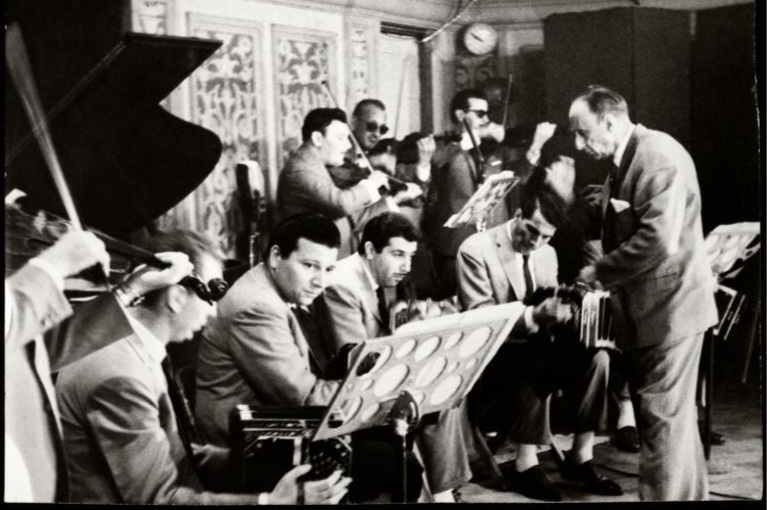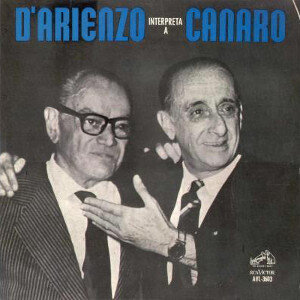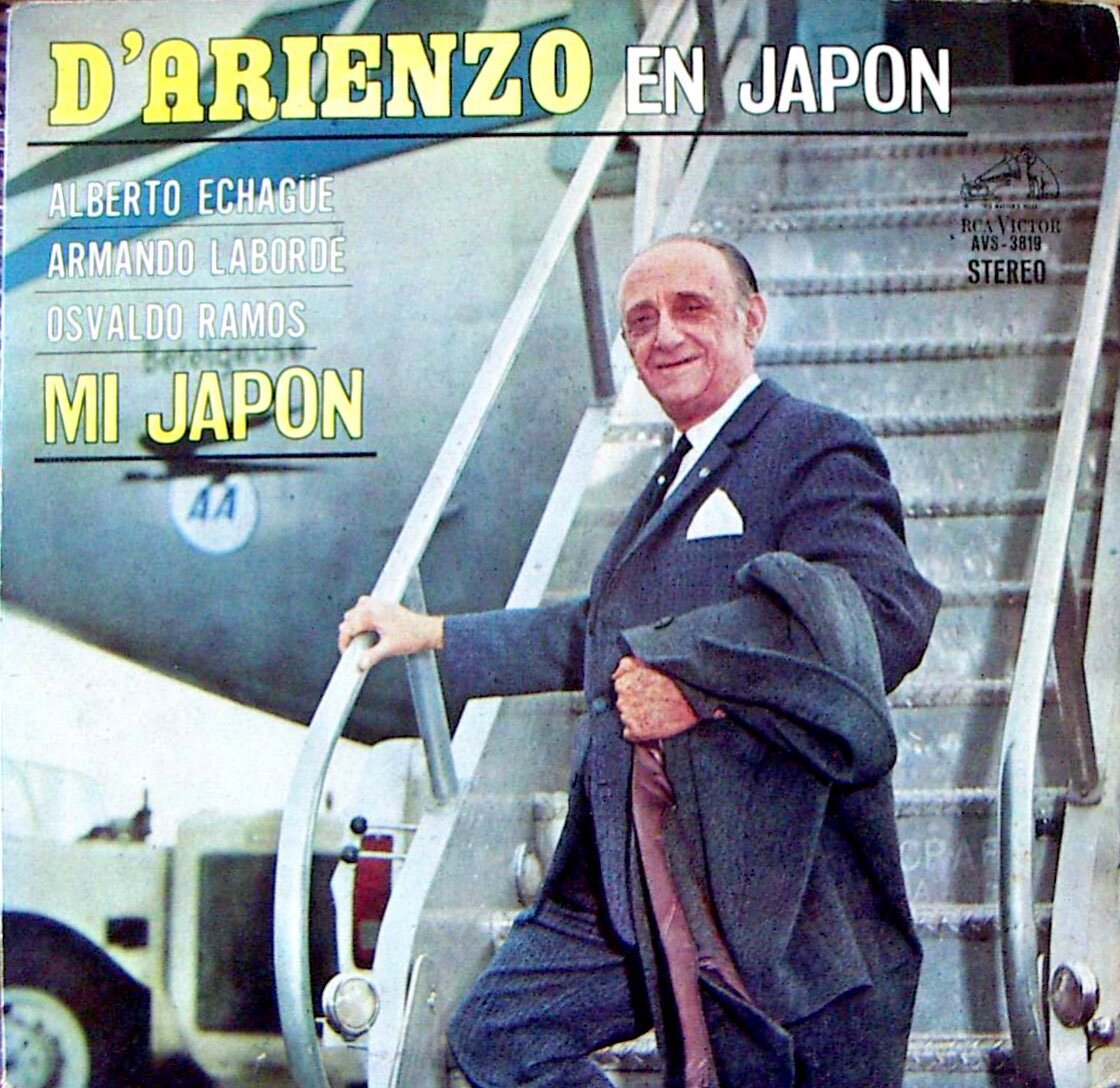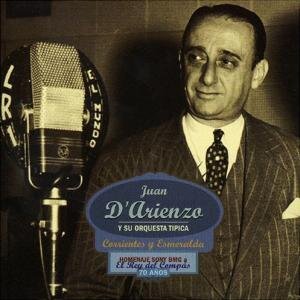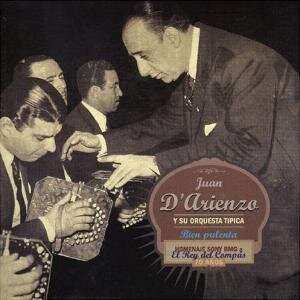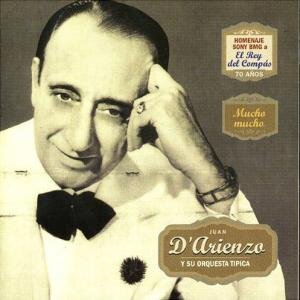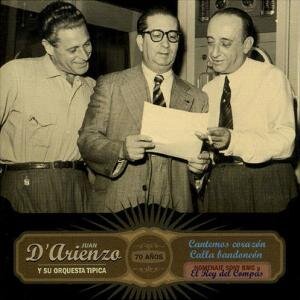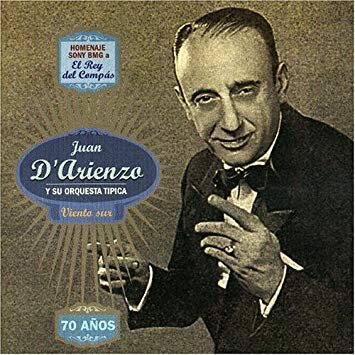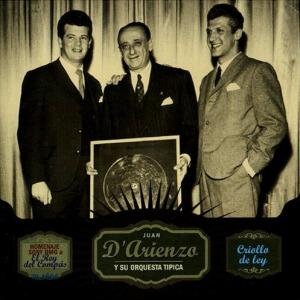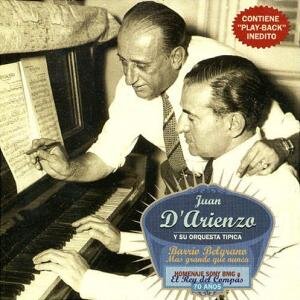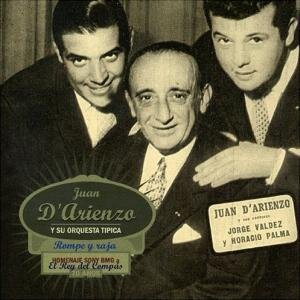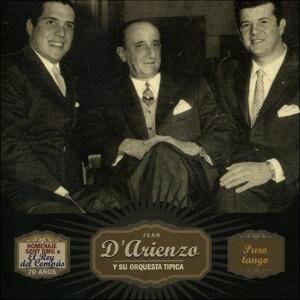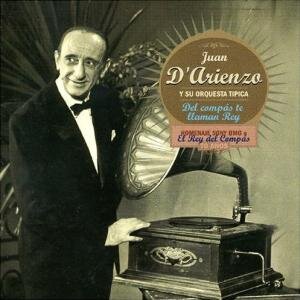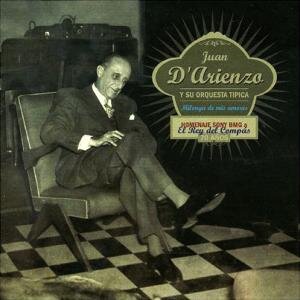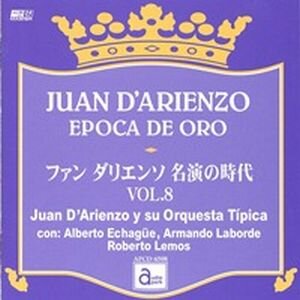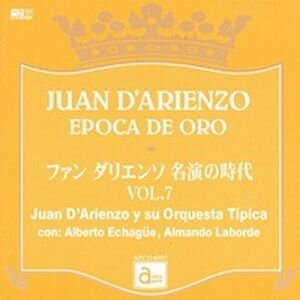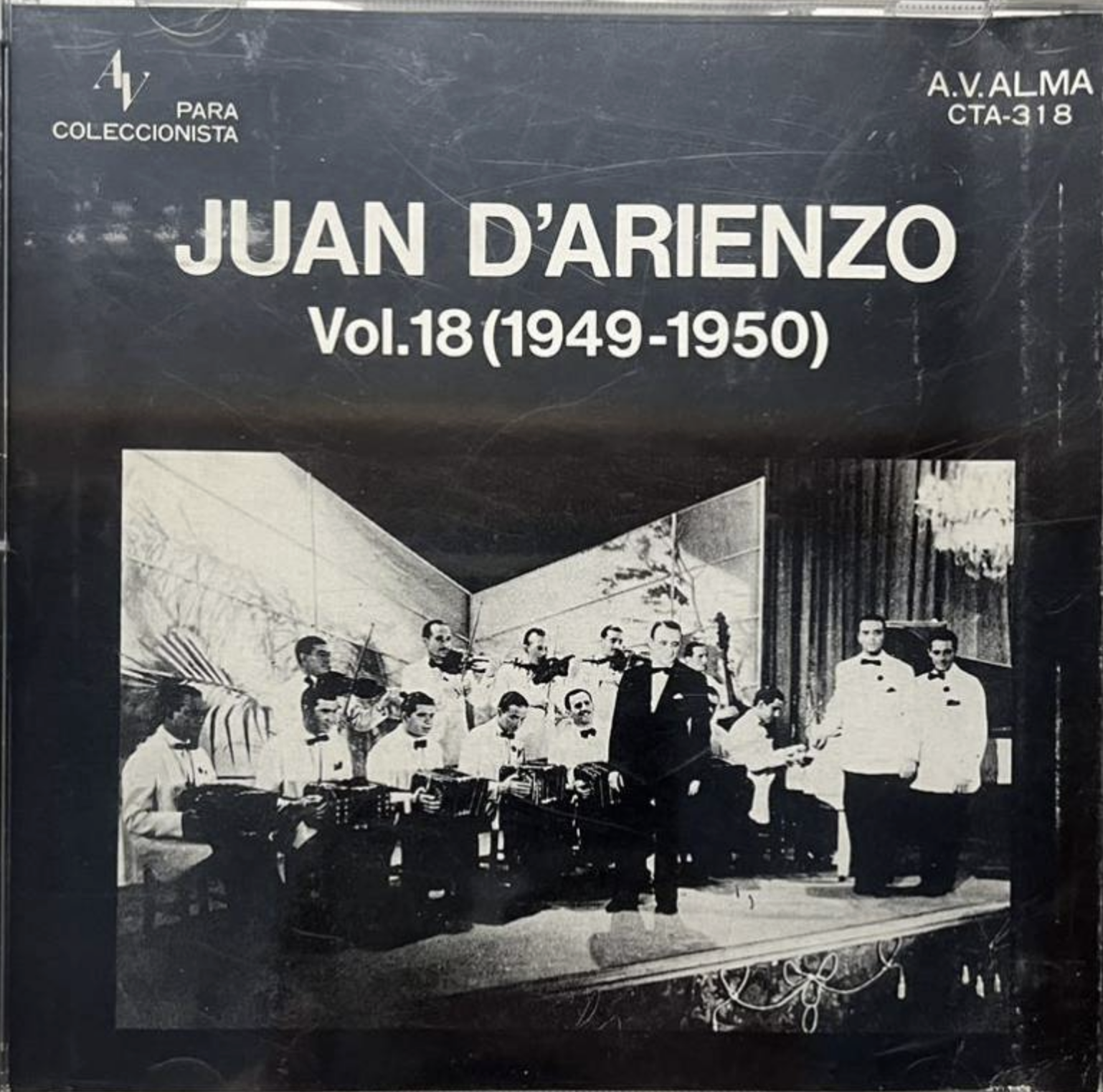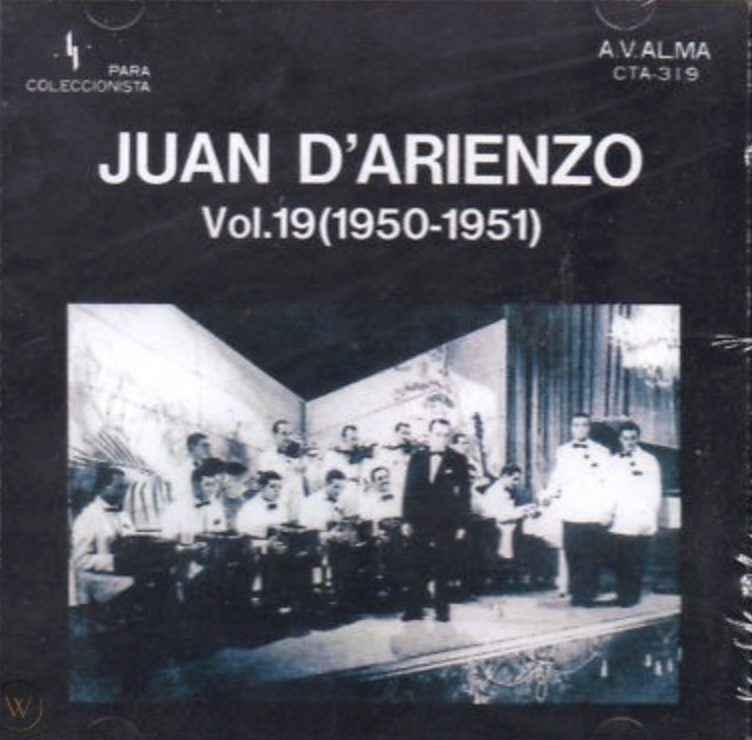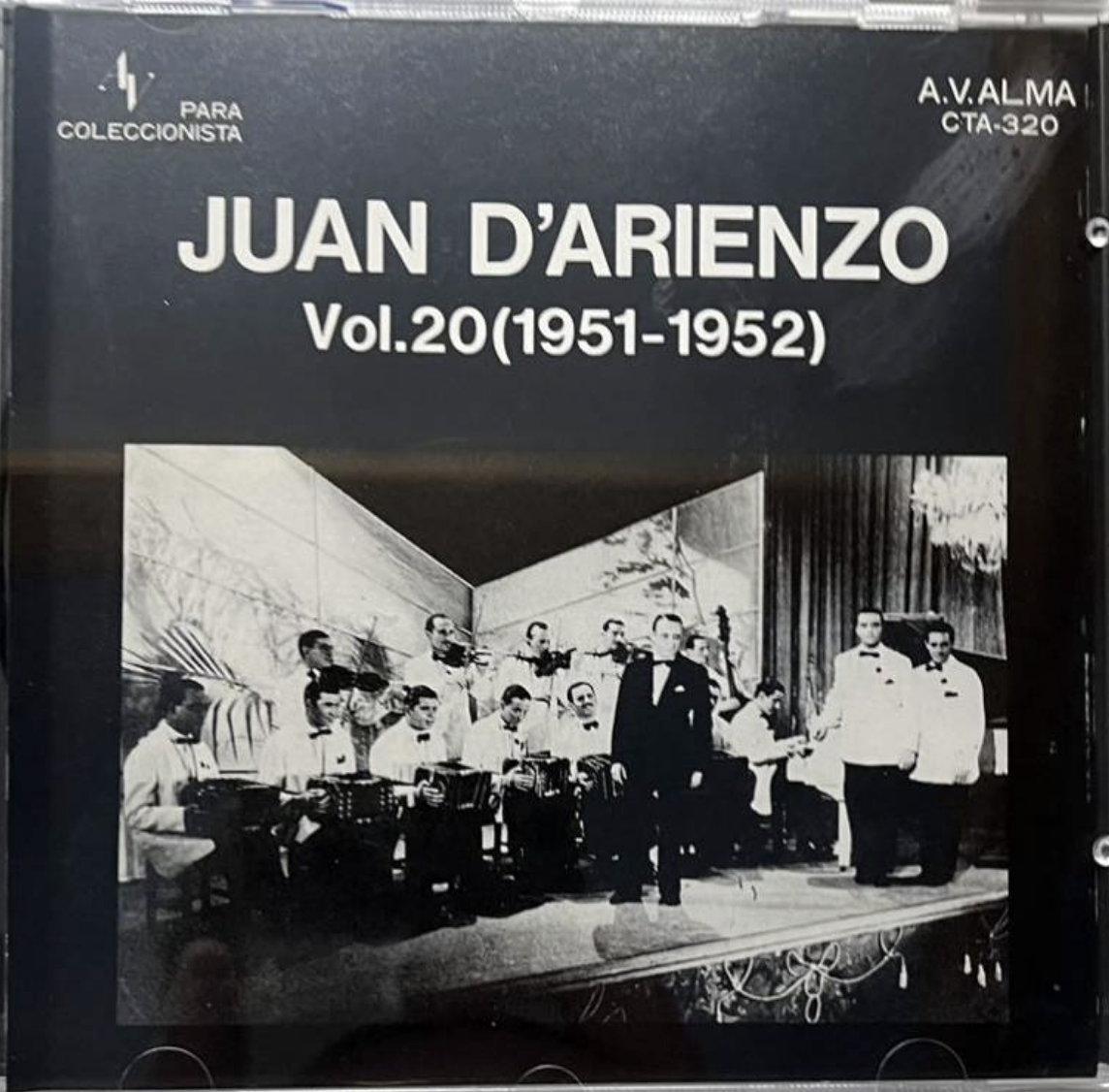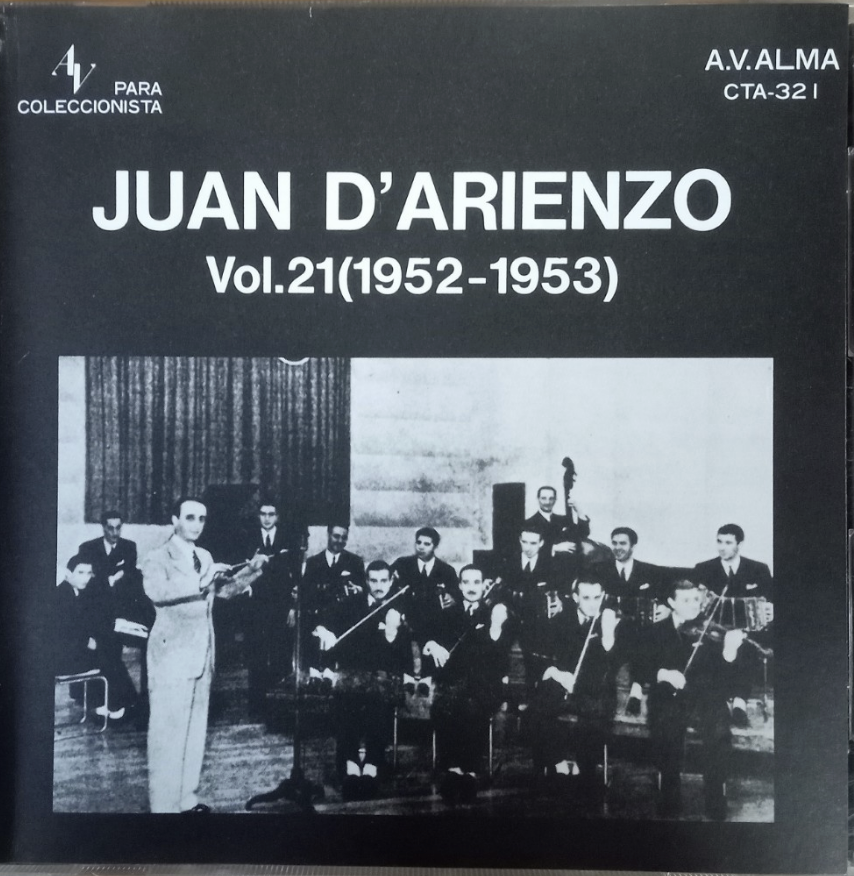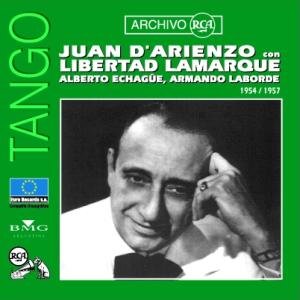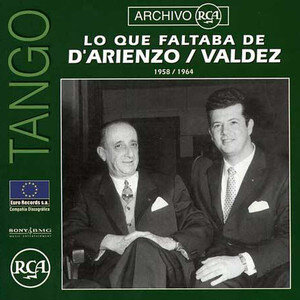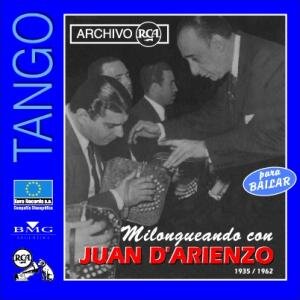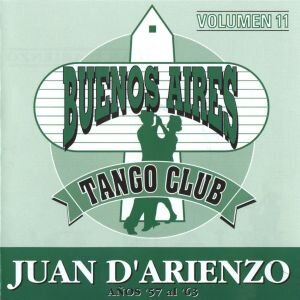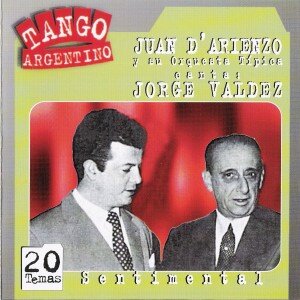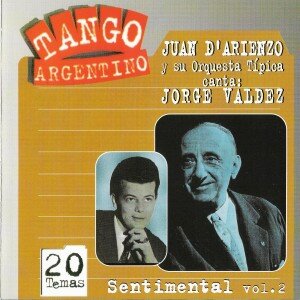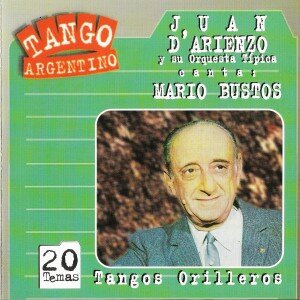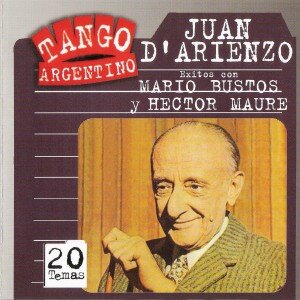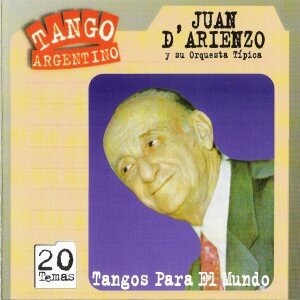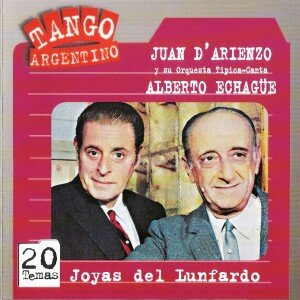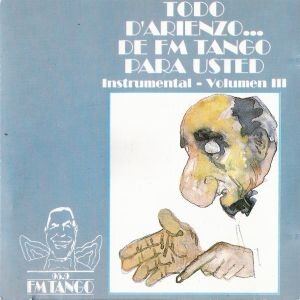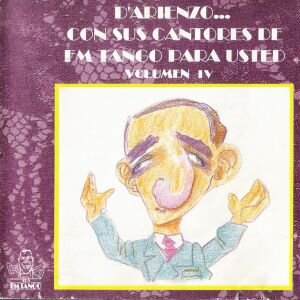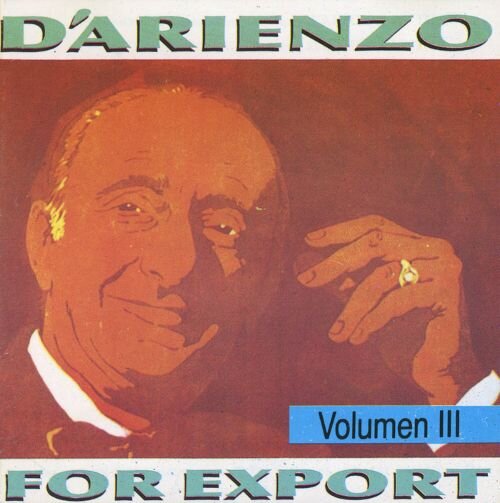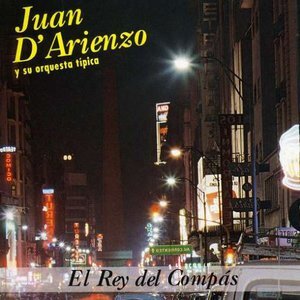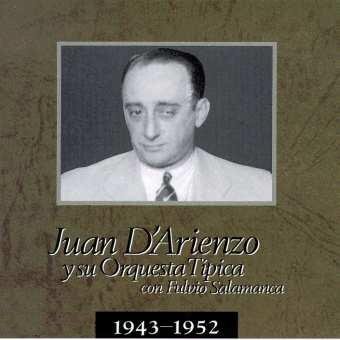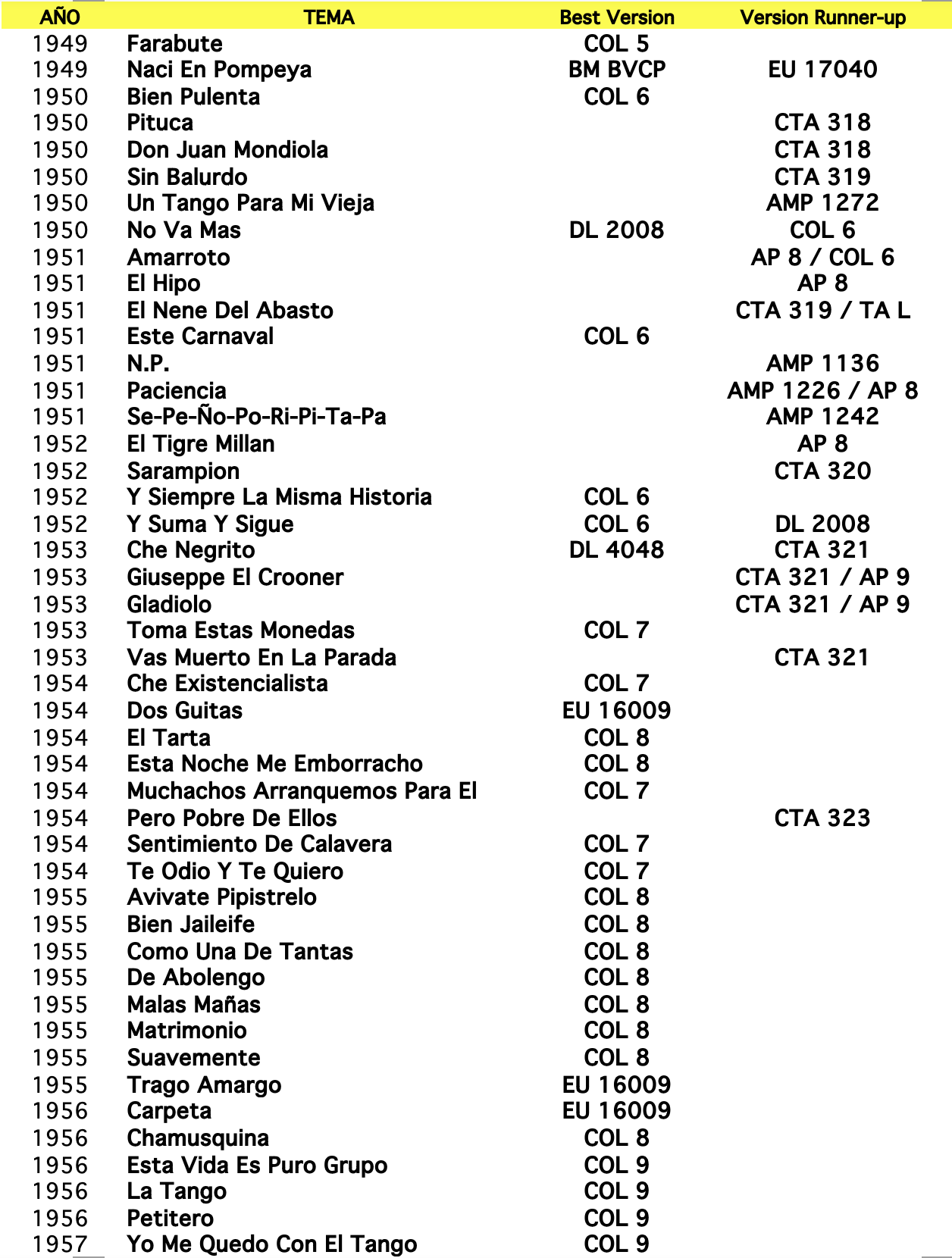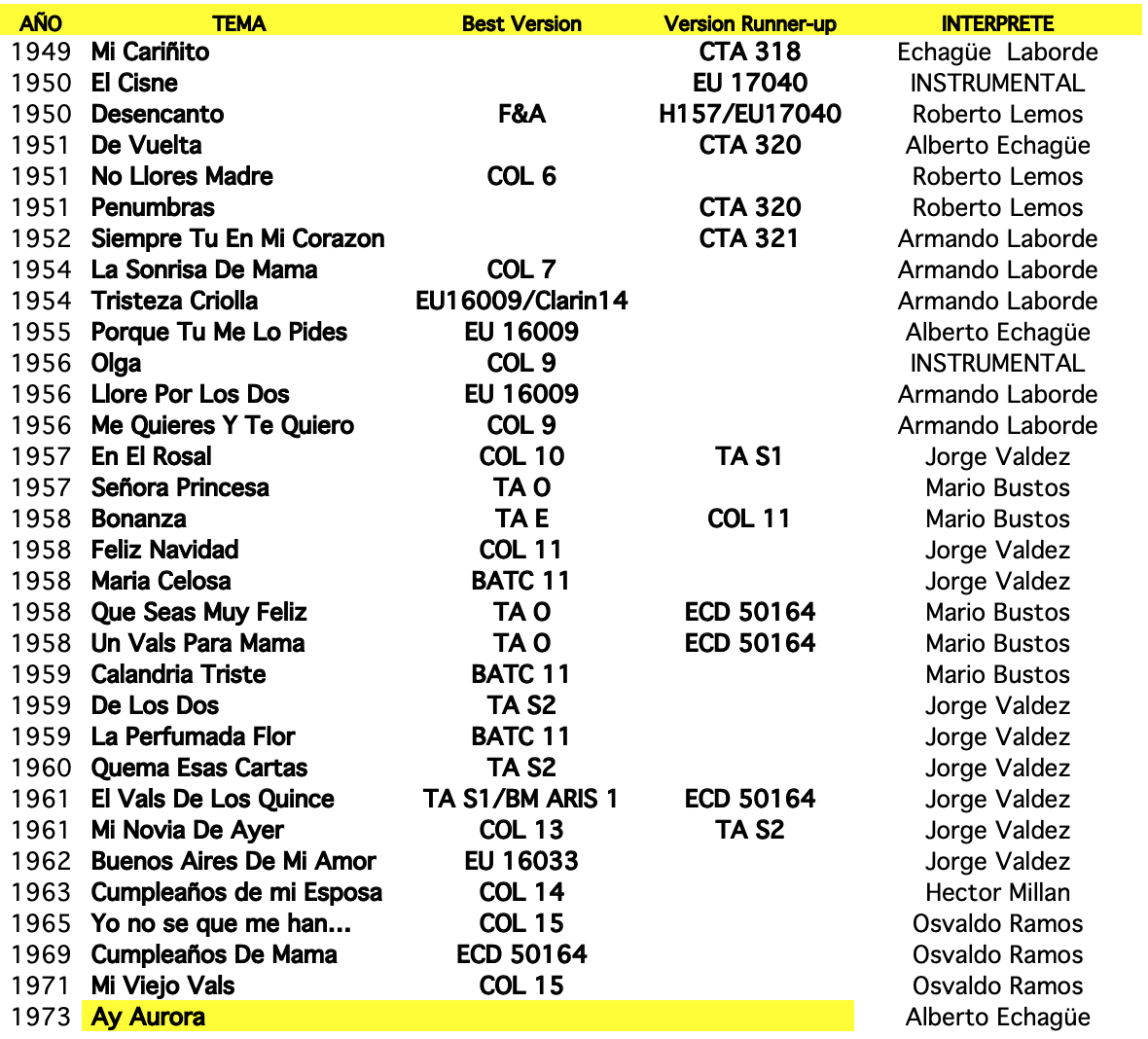3) Juan D’Arienzo in the Post-78rpm Era
Get ready to immerse yourself in an extensive collection of albums because we are talking about El Rey del Compás! As a contracted artist with Víctor for 40 years, Juan D’Arienzo recorded nearly a thousand tracks until the last year of his life. His complete oeuvre bears witness to the evolution of sound technology and the shifts in traditional tango from the Golden Age's inception to its inevitable decline.
The maestro recorded "Farabute" and "La Maleva" on July 26, 1949, marking his first direct-to-disc experimental EP recording. His initial tape recordings weren't completed until the very end of 1953 (December 28). In total, there are 90 numbers falling into this gap period, and their available CD transfers are barely acceptable; the majority are from shellacs, presenting severe pitch issues and incorrect de-emphasize curves.
It's a significant pity since, around 1950, the orquesta achieved its ultimate musical triumph. First-print EP/LPs, which are the ideal sources for digitalization and restoration from this period, are extremely challenging to acquire (if they ever existed), but not entirely impossible.
On the other hand, there are a huge quantity of tracks (around 150) in the 60/70s which were never officially digitally released, which means you would have to look for them in LP format. Some LPs are actually very interesting such as AVL-3819 D'Arienzo en Japón, AVL-3603 D'Arienzo interpreta a Canaro (see above), etc. But in this chapter we will basically discuss about CDs.
Must-haves (36 discs):
RCA’s Colección Juan D'Arienzo (COL, 15 CDs) released in 2005, tribute to the maestro’s 70th anniversary from his first record made in Víctor. This is THE most important official collection of D’Arienzo, especially those recorded after the advent of vinyl and tape technology, since RCA has opened their vault for remastering those antique master tapes for this set. The repertoire slightly leans in favor of earlier performances.
The 5th album Corrientes y Esmeralda 1944-1949 (COL-5) includes some very first EP transfers of D’Arienzo; from the 7th album (Mucho mucho 1953-1954, COL 7) above are almost all direct transfers from the master tapes.
The eleven necessary albums are COL 5-15. It is worthy to mention that the whole collection absolutely deserves an evident position on your shelve. However, this set is an anthology. It is apparently not enough for us greedy collectors.
Audio Park (AP) and Club Tango Argentino (CTA) series are both Japanese labels dedicated in hardcore 78rpm transfers. The difference between their D’Arienzo output is that the AP series is an anthology while CTA provides a complete catalog. The AP transfers are slightly better and clearer, however they did apply some unnecessary sound artifacts occasionally.
Usually we are reluctant to go back to 78rpm shellac transfers with music recorded from 1949 onwards. Nevertheless, these Seven albums provide a solution to the missing vinyl transfers from 1949 to 1953. They are: AP 7, AP 8, CTA 318-321.
There are four albums of EU Records/Archivo RCA that present the Rey, i.e. EU-16009, EU-16019 (Di Sarli+D’Arienzo), EU-16025 and EU-16033, plus BATC Vol.11 and two tracks from compilation EU-16039. All six albums are reel-to-reel tape transfers serving the perfect supplement of what the COL series has missed out after 1953.
The huge Tango Argentino (TA) series is one of the very earliest reissue of the historical tango music legacy. Among them, Six albums are more important: Sentimental (TA-S1), Sentimental Vol.2 (TA-S2), Tangos Orilleros (TA-O), Exitos con MB y HM (TA-E), Tangos para el Mundo (TA-M1) and Joyas del Lunfardo (TA-L).
This series, together with the COL, EU, AP and CTA discs mentioned above, roughly complete the maestro’s whole catalog of 1949-1962 with only a few slipped through the net.
Old FM Tango and Tango for Export series are not completely obsolete and useless. The FM Tango Vol.3 and Vol.4 (FM 3/4), Tango for Export Vol.2 and Vol.3 (ECD-Ex2/3) are very necessary to get a glimpse of Juan’s post-1963 late instrumental works.
Year 1963/64 marks the start of the “camp” stage of D’Arienzo’s artistic career, when Valdez was replaced by young Ramos with Laborde/Echagüe being summoned back. People just enjoyed watching the old king fervently waving his baton on the stage showcasing his best hits until the very last moment.
RCA Victor 100 años, Juan D’Arienzo
D’Arienzo’s late orchestral works in best sound quality that you cannot find elsewhere.
Clarin Tango de Collección Vol.14: D’Arienzo
The invincible transfer of Este Es El Rey in this album is the gem you need.
Could-haves:
For some specific tunes, you have no better choices than these albums below: (In case being too lengthy for this chapter, I have refrained myself from showing all the albums in the list. Please prompt a question if you need complete info of the albums in abbreviation)
EU-17011 Juan D’Arienzo 1944-1949
BM Japan Juan D’Arienzo R32P-1101
Providing the best transfers of some tracks in the 1950s. Some EQ restoration needed.
ECD-1100 El Rey del Compás
Nice LP (not tape) transfers including La Cumparsita(1971)
DiscoLatina 2008: Juan D’Arienzo con Fulvio Salamanca
BMG Serie 20 Exitos Vol.2 (BM SE 2)
Some beautiful Ramos tracks, including Mi Dolor.
Gran Historia del Tango Argentino 10 CDs (GHTA)
A nicely done Japanese set, providing the best LP transfers of El Simpático (1951).
EU-17040 Juan D’Arienzo 1947-1952
DiscoLatina 4048: Juan D’Arienzo
Very hard to find. Many instrumental pieces are the best after small adjustment.
ECD-50164 El Vals de los Quince
BMG Serie Arco Iris Vol.1 (BM ARIS 1)
Frémeaux & Associés: Argentine Vals, Tango et Milonga 1907-1950 (F&A)
Siglo Del Tango Argentino 10 CDs (STA)
A nicely done Japanese set, providing the best LP transfers of Canaro en París and Tucumán (1950).
The Comparison List
PS: Items in yellow are yet officially digitalized, and are only available in LPs or private transfers.
Tango Instrumental 1949-57
Tango Instrumental 1957-63
Tango Instrumental 1964-1975
Alberto Echagüe 1949-57
Armando Laborde 1949-1957
Jorge Valdez 1957-1964
Mario Bustos 1957-59
Roberto Lemos, Libertad Lamarque, Horacio Palma, etc.
Osvaldo Ramos 1965+ (tracks available on CDs only)
Milonga 1949+
Valz 1949+
